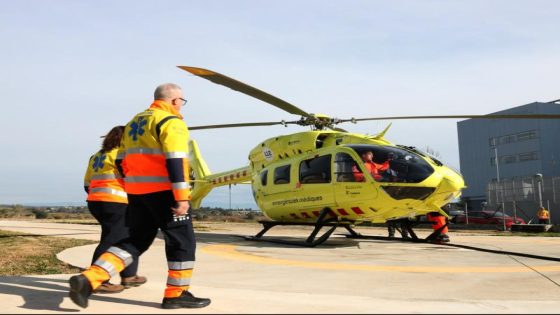The recent suspension of the medical helicopter service in Móra d’Ebre has sparked outrage among local residents. On February 5, 2025, this decision has reignited long-standing frustrations about perceived neglect in rural areas of Spain. Why does it seem that some communities are treated as second-class citizens when it comes to essential services?
- Helicopter service cuts spark regional outrage
- Historical grievances of southern Catalonia
- Local governments demand better public services
- Health care access concerns in rural areas
- Contract issues with helicopter service provider
- Community unity in advocating for justice
Why the Helicopter Service Suspension Matters for Rural Communities in Spain
How does the loss of a medical helicopter affect the people of Móra d’Ebre? This service is crucial for emergency medical care, especially in rural regions where access to hospitals can be limited. The recent decision has prompted local leaders to demand better healthcare provisions and to voice their concerns about being overlooked by central authorities.
Local Leaders Unite to Demand Better Healthcare Services
In response to the helicopter’s suspension, local governments from the Ribera d’Ebre, Terra Alta, and Priorat have come together to advocate for their communities. Their collective action emphasizes the need for equitable healthcare access across all regions. This situation raises critical questions about how resources are allocated and whether rural areas receive the attention they deserve.
Key Concerns Raised by Local Authorities
Local officials have highlighted several pressing issues regarding the healthcare system:
- Inadequate emergency services in rural areas.
- Perceived neglect from central government authorities.
- Impact of healthcare disparities on population decline.
- Urgent need for better infrastructure and resources.
Community Response and Actions Taken
The community’s reaction has been swift, with protests and petitions circulating to restore the helicopter service. Local leaders, including Móra d’Ebre’s mayor, have emphasized that “with health, there is no playing around,” indicating the seriousness of the situation. Residents are rallying together, demanding that their voices be heard and that they receive the same level of healthcare as urban areas.
Looking Ahead: The Future of Healthcare in Rural Spain
As this situation unfolds, it raises important questions about the future of healthcare in rural Spain. Will the government respond to these demands and ensure that all citizens, regardless of their location, have access to essential services? The outcome will likely influence not only local healthcare policies but also set a precedent for how rural areas are treated in the broader context of national healthcare.
In conclusion, the suspension of the medical helicopter service in Móra d’Ebre highlights significant issues surrounding healthcare access in rural regions. As communities unite to advocate for their rights, it is essential to recognize the broader implications of this situation for rural areas both in Spain and the U.S.
































